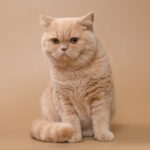Cate Blanchett, while promoting her latest film, Carol, has openly spoken about her experiences with same-sex relationships. The film, a poignant lesbian love story also starring Rooney Mara, has sparked conversations about LGBTQ+ representation and Blanchett’s own life.
In a candid interview with Variety magazine leading up to the Cannes Film Festival premiere of Carol on May 17th, Blanchett addressed questions about her portrayal of a lesbian character. When asked if this was her first time playing a lesbian role in a film directed by Todd Haynes, Blanchett turned the question introspective. “On film – or in real life?” she responded, prompting further inquiry about her personal experiences. Upon being asked directly if she had ever been in relationships with women, Blanchett confirmed, “Yes. Many times.” This revelation about Cate Blanchett Relationships has since become a significant talking point, adding depth to the discourse surrounding her role in Carol.
Carol, adapted from Patricia Highsmith’s novel The Price of Salt, is set in 1950s New York and explores the burgeoning romance between Carol, an older married woman (Blanchett), and Therese, a young department store clerk (Mara). This is not Blanchett’s first foray into Highsmith’s world, having previously appeared in the adaptation of The Talented Mr. Ripley. For Carol, Blanchett immersed herself in literature of the period, specifically “girl-on-girl books,” to understand the nuances of same-sex relationships during that era. She also collaborated closely with costume designer Sandy Powell, discussing the sensuality and “erogenous zones” to authentically portray the character’s physicality and desire.
Blanchett emphasized that Carol depicts a quiet and understated love, unlike more explicit portrayals. She differentiated it from films like Blue is the Warmest Colour, highlighting Carol‘s subtle approach to exploring same-sex attraction and cate blanchett relationships within the constraints of the 1950s societal context.
Off-screen, Blanchett is married to Andrew Upton, and they are parents to three sons and a daughter, Edith, who was adopted earlier in the year of the interview. Upton was, at the time, the artistic director of the Sydney Theatre Company. The couple had plans to relocate their family to the United States as Upton’s tenure with STC was concluding.
During the Variety interview, Blanchett also addressed the ongoing dialogue in Hollywood concerning gender equality and pay parity. She acknowledged the progress made by women in the industry, citing figures like Meryl Streep, Reese Witherspoon, and Nicole Kidman, but stressed the need for continued advancement. “We have to push forward,” she stated, pointing out the broader societal issue of pay inequality across all industries.
Cate Blanchett’s openness about her past relationships, in conjunction with her role in Carol, provides a richer context for understanding both the actress and the film. Her willingness to share personal experiences adds another layer to the conversation around LGBTQ+ representation in cinema and the complexities of cate blanchett relationships, both on and off the screen.

